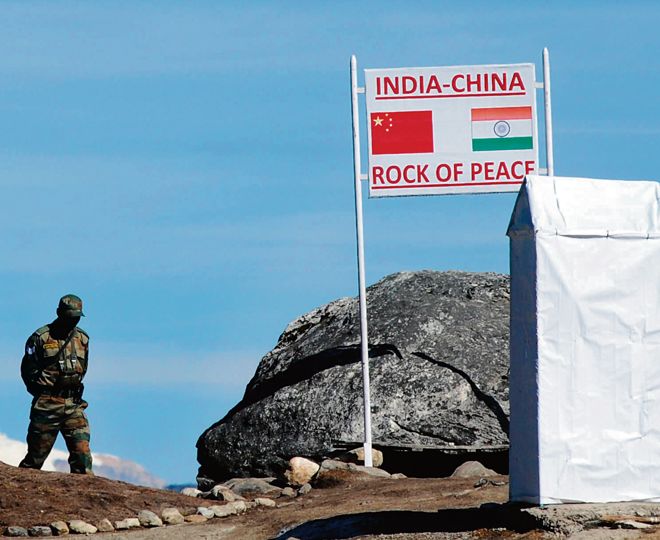
Sandeep Dikshit
New Delhi, April 4

India said on Tuesday it rejected attempts by China to rename places in its eastern state of Arunachal Pradesh. “Arunachal Pradesh is, has been and will always be an integral and inalienable part of India,” said Foreign Ministry spokesperson Arindam Bagchi in response to media reports on the Chinese Civil Aviation Ministry releasing the third batch of Sincised locations in Arunachal Pradesh.China had defended the renaming of 15 places in Arunachal Pradesh by its Ministry of Civil Affairs in 2021, claiming that the state is actually southern Tibet, an “inherent part” of its territory. Its Foreign Office had also stated that these matters are within “China’s sovereignty”. Beijing calls Arunachal Pradesh “Zangnan” (southern part of Southwest China’s Xizang Autonomous Region). As was the case on Tuesday, the MEA had strongly rejected the renaming of places in the past. Then, too, it had asserted it has “always been” and will “always be” an integral part of India. It had then added that “attempts to assign invented names will not alter this reality”. This formulation was also included in Bagchi’s brief response on Tuesday. “The official names of the 11 places were released by the ministry on Sunday, which also gave precise coordinates, including two residential areas, five mountain peaks, two rivers and two other areas. It also listed the category of places’ names and their subordinate administrative districts,” said the state-owned Global Times. In order to strengthen the standardised administration of place names, China’s move to standardise the names in “Zangnan” completely “falls within China’s sovereignty” and it is also in accordance with the regulation on the administration of geographical names, it added, quoting a staffer of a Chinese think-tank. Some river names were “standardized”, to make people “more aware” of China’s territory, said the researcher Zhang. The names were written both in standard Chinese characters and Tibetan, reflecting the respect for ethnic culture in accordance with the law, he said.
